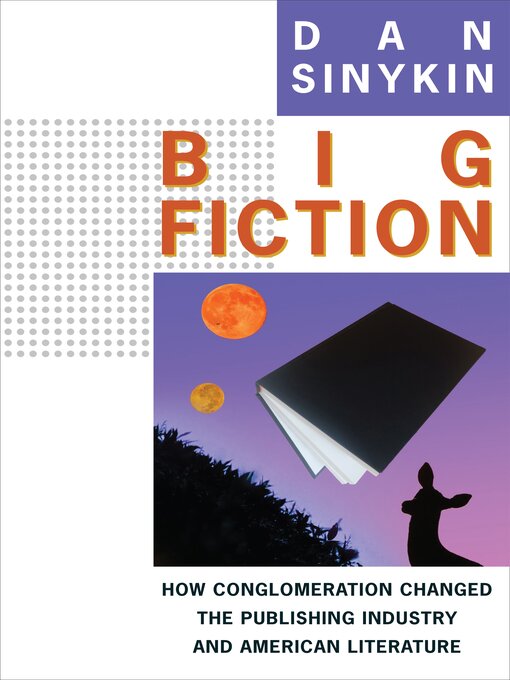Shortlisted, 2024 SHARP Book History Book Prize, Society for the History of Authorship, Reading, and Publishing
In the late 1950s, Random House editor Jason Epstein would talk jazz with Ralph Ellison or chat with Andy Warhol while pouring drinks in his office. By the 1970s, editors were poring over profit-and-loss statements. The electronics company RCA bought Random House in 1965, and then other large corporations purchased other formerly independent publishers. As multinational conglomerates consolidated the industry, the business of literature—and literature itself—transformed.
Dan Sinykin explores how changes in the publishing industry have affected fiction, literary form, and what it means to be an author. Giving an inside look at the industry's daily routines, personal dramas, and institutional crises, he reveals how conglomeration has shaped what kinds of books and writers are published. Sinykin examines four different sectors of the publishing industry: mass-market books by brand-name authors like Danielle Steel; trade publishers that encouraged genre elements in literary fiction; nonprofits such as Graywolf that aspired to protect literature from market pressures; and the distinctive niche of employee-owned W. W. Norton. He emphasizes how women and people of color navigated shifts in publishing, arguing that writers such as Toni Morrison allegorized their experiences in their fiction.
Big Fiction features dazzling readings of a vast range of novelists—including E. L. Doctorow, Judith Krantz, Renata Adler, Stephen King, Joan Didion, Cormac McCarthy, Chuck Palahniuk, Patrick O'Brian, and Walter Mosley—as well as vivid portraits of industry figures. Written in gripping and lively prose, this deeply original book recasts the past six decades of American fiction.
- Available now
- New eBook additions
- New kids additions
- New teen additions
- Most popular
- Try something different
- Personal Finance
- See all ebooks collections
- Available now
- New audiobook additions
- New kids additions
- New teen additions
- Most popular
- Try something different
- Full Cast Audiobooks
- See all audiobooks collections
- Popular Magazines
- Just Added
- Cooking & Food
- Home & Garden
- Health & Fitness
- Fashion
- News & Politics
- Hobbies & Crafts
- Celebrity
- Technology
- Cars & Motorcycles
- Family & Parenting
- Sports
- See all magazines collections

